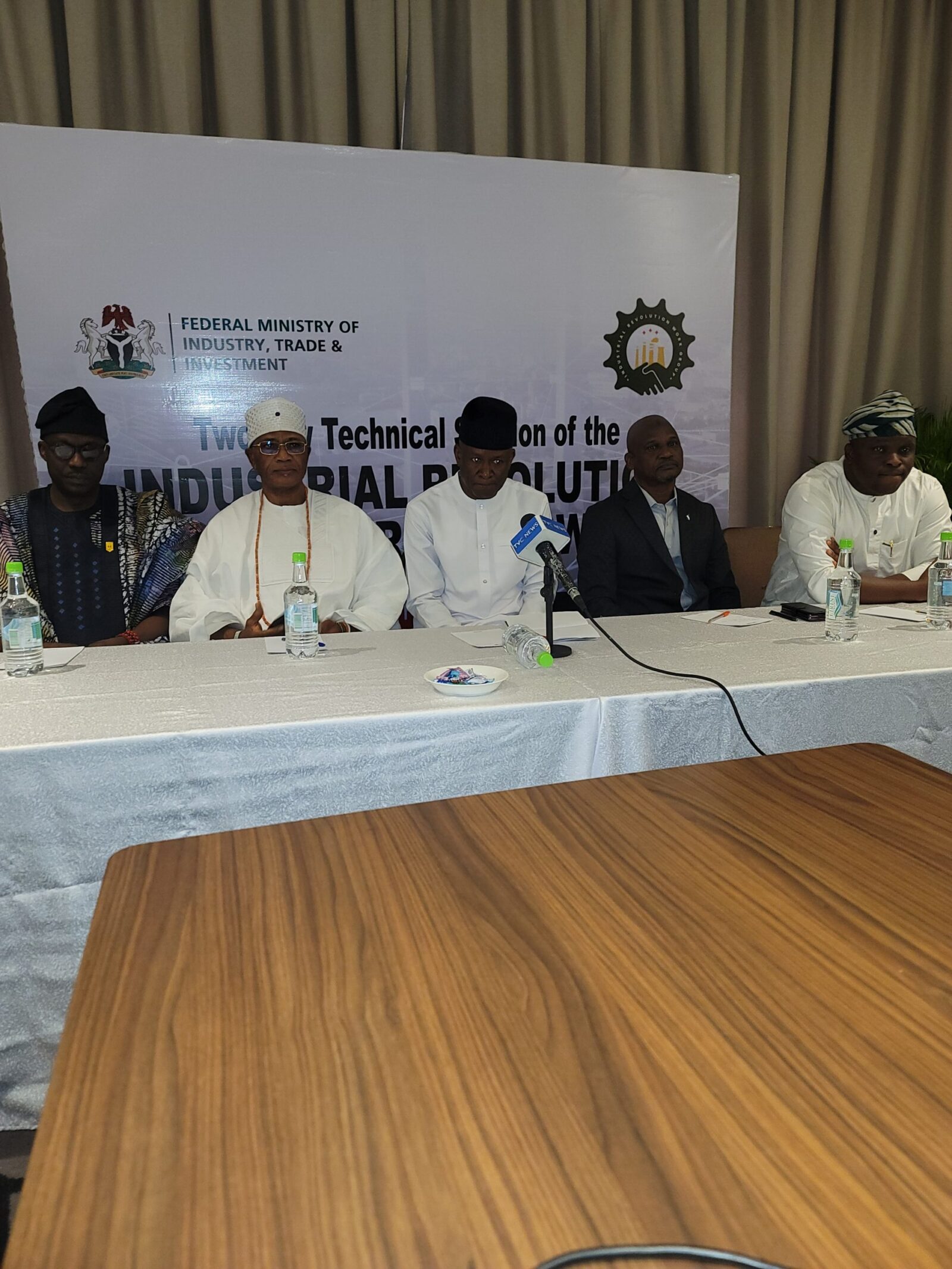•We’re transitioning from policy to prosperity –Minister
By Uche Usim
Nigeria’s path to industrial transformation gained fresh traction on Monday as the Federal Ministry of Industry, Trade and Investment convened a two-day technical session in Lagos to re-energise the country’s industrial ambitions. Speaking at the opening ceremony, the Minister of State for Industry, Senator John Enoh, harped on the federal government’s resolve to turn years of planning into measurable progress, by reviving industries, boosting private sector confidence and delivering jobs to Nigerians.
Held under the theme “From Activities to Outcomes: Driving Industrial Renaissance,” the session brought together members of the Industrial Revolution Work Group (IRWG), a key delivery engine designed to convert Nigeria’s industrial blueprints into tangible results.
Enoh said Nigeria was fast moving beyond the era of policy pronouncements with little follow-through.
According to him, the current administration is actively working to restore private sector confidence and revive moribund industries, in an effort to reawaken the country’s industrial potential.
He noted that the wave of industrial shutdowns and closures has started to decline, pointing to signs of recovery driven by increased private sector optimism and government actions aimed at rebuilding trust in the economy.
“We are not here for symbolism or routine talk-shops.
“We are here because something must shift permanently and decisively in the way we pursue Nigeria’s industrial ambition. Success cannot be measured by the size of our communique or the elegance of our presentations. It must be measured by the systems we fix, the industries we revive, the jobs we create and the lives we impact”, he said.
He said the theme of the session captures the urgency of the moment, just as he explained that the Industrial Revolution Work Group was not created as another advisory body, but as a delivery-driven platform designed to fast-track industrial execution. The forum, he said, is focused on identifying practical, high-impact interventions that can be implemented quickly and scaled over time to create sustainable change across the industrial landscape.
A critical highlight of the session was the announcement that Nigeria’s long-awaited National Industrial Policy would be unveiled soon.
He said the current document, a draft, though usable, does not totally capture the exigencies of the moment.
He promised that a full-fledged, updated policy, reflective of current economic realities and nourished with relevant stakeholder input, will soon be finalised and presented.
“This policy will not sit on a shelf. It will be a working document that speaks directly to the challenges of energy insecurity, weak infrastructure, regulatory bottlenecks and the need for a globally competitive manufacturing sector,” he said.
He further noted that while Nigeria has in the past committed over $2 billion to initiatives like the backward integration programme in the sugar industry, such efforts must now be underpinned by a coherent and enforceable national strategy. The upcoming industrial policy, he assured, would be designed to mobilise capital, unlock long-term financing, address infrastructure gaps and drive local content utilisation, especially in raw material sourcing.
The Minister also highlighted the administration’s commitment to the “Nigeria First” policy, a presidential directive aimed at strengthening patronage for locally produced goods and services.
He revealed that even before the official pronouncement by the President, his office had already been working in that direction. He cited Ogun State’s initiative mandating civil servants to wear adire fabric once a week, which has led to a resurgence in the indigenous textile industry, as a model worth replicating at the national level.
Plans are already underway, he said, to launch a nationwide campaign that champions local content and industrial pride.
Enoh challenged participants to focus their discussions on clear, time-bound outcomes.
“As we break into thematic sessions, I urge everyone to think in terms of execution,” he said. “What can we implement in 90 days, in six months, in one year? How do we move the needle now, not in theory, but in measurable actions?”
He urged the working groups to craft bold, catalytic proposals that can unlock value quickly and be monitored for results.
“This must be the beginning of a new ethos, one that rejects passive commentary and embraces agile execution,” he said. “The Nigerian people are watching. Investors are watching. The future of our industrial sector depends not on how much we say, but on how much we deliver.”
As the session progresses, stakeholders from government, private sector, academia and international partners are expected to align on a roadmap that will transition Nigeria’s industrial sector from prolonged planning to practical prosperity. The IRWG, according to Enoh, will remain a permanent engine room for results, driving reform, enabling manufacturing growth, and ensuring that Nigeria’s long quest for industrialisation finally translates into real-world impact.
















Leave a comment